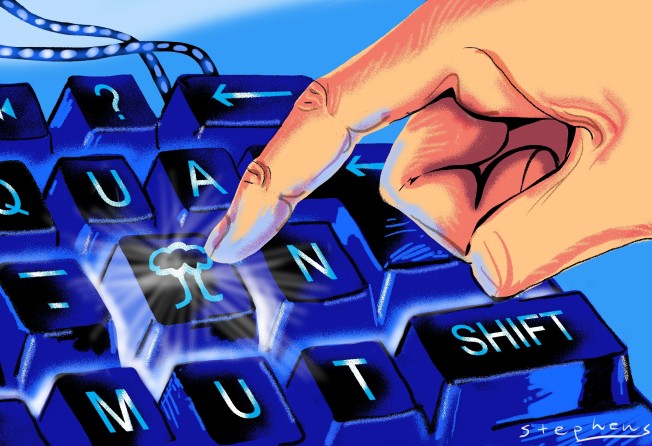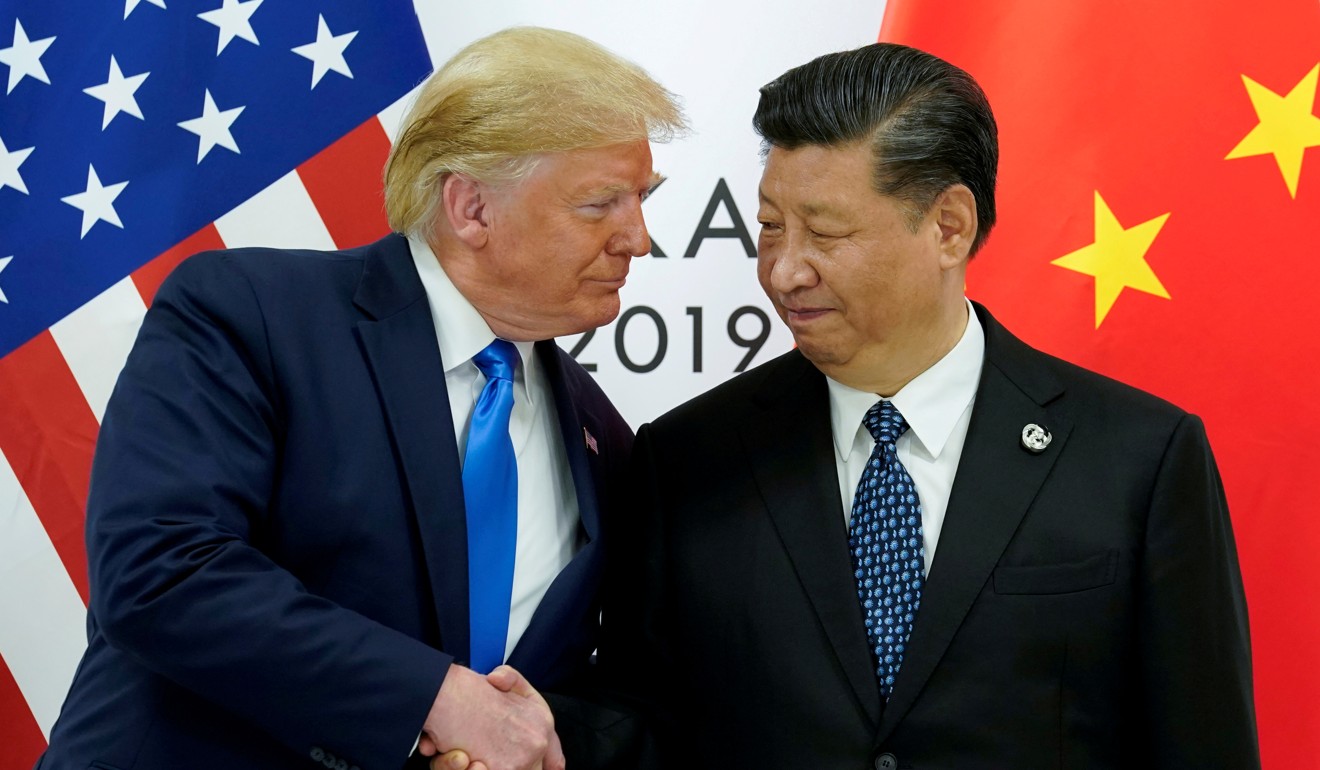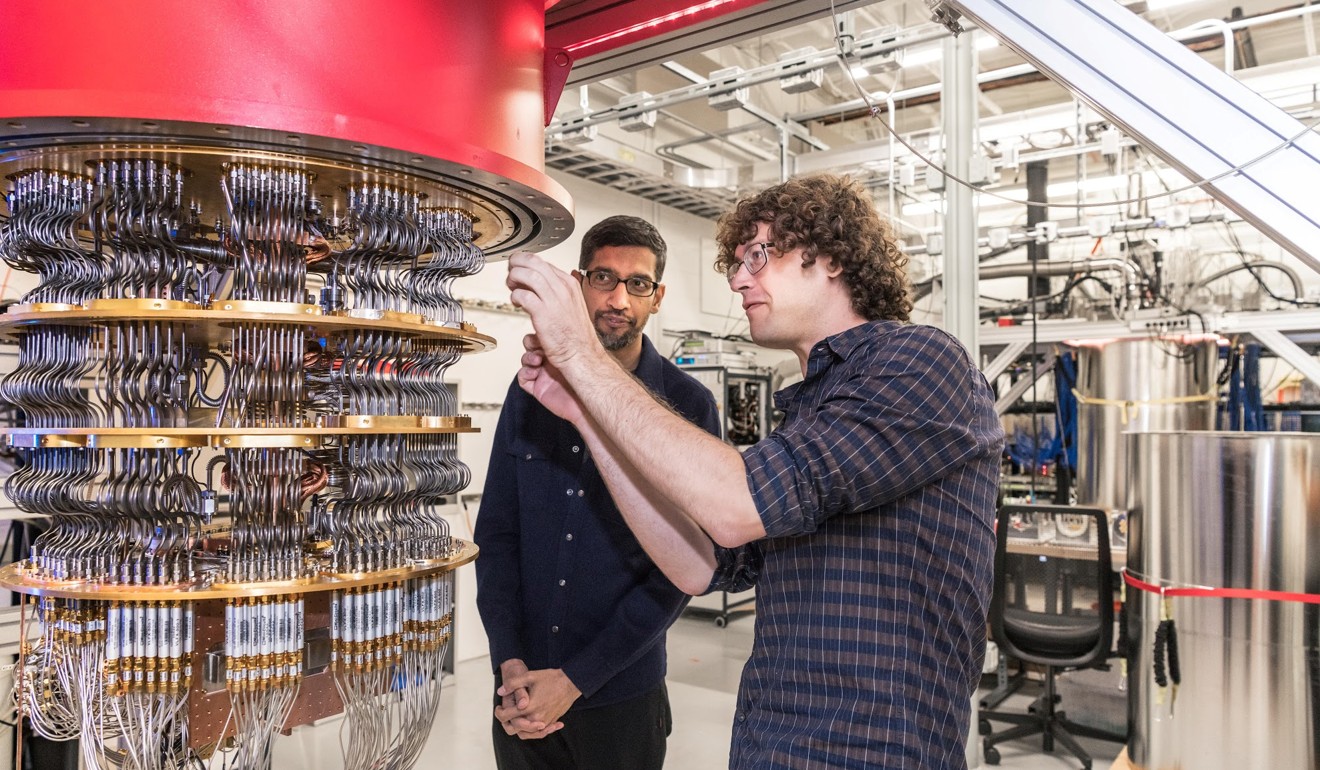Danger of escalating US-China conflict is heightened by advances in AI and quantum computing
- The declining military and economic power of Europe, Japan and Russia heralds a bipolar world at risk of falling into armed conflict
- Technological advances mean a first strike using weapons of mass destruction is likely to be the final one

A quite discernible trend in many parts of the world in recent months is the growing fear, anger and even hatred of China. It is especially noticeable in the United States, Europe and Japan.
In the US, antipathy towards China recently grew as a product of the trade dispute. The Democratic Party, the mainstream media and academia then joined US President Donald Trump to add grievances and amplify ill feeling towards China. Anti-China sentiment in America is now at a record high.
In Europe, there is apprehension about China’s Belt and Road Initiative, which has been active in building road, rail, pipeline and other infrastructure in Africa, Asia and Europe, and the prospect of China becoming an economic powerhouse. European countries and their citizens feel upstaged. China’s rapid economic growth and its expanding military power also expose the European Union as a declining global force, which most Europeans find hard to accept and resent China for.
Japan is out of the race to be the dominant power in Asia because China has surpassed Japan in both economic and military might. This, and a territorial dispute, have fed ill feeling towards China that a poll indicates 85 per cent of Japanese hold.
All three are also disturbed that China threatens to supplant the liberal world order that the US and Europe built after World War II and that Japan has signed on to – a global system that is now in collapse.
The rules, policies and institutions that have guided the world since the second world war have run their course, says Richard Haass in his recent book A World in Disarray.
The Western powers oppose the alternative: a China-centred order based on commerce and trade that promises economic growth and peace.
Another worrisome and ominous trend is Europe, Japan and Russia rapidly falling behind in the race for global power and influence as their economic and military power declines show. This means that a multipolar world, which many in the West, especially liberals, favour, is no longer in sight.

The Western powers also fret about the fact that the US is the status quo power and China is the fast-rising challenging power. As Thucydides wrote in his classic study The Peloponnesian War long ago – an idea that is widely accepted today – this is a recipe for war.
But there are even more worrisome reasons for disquiet: the profound trends in the ingredients of global power.
Artificial intelligence, quantum computers and other advances in technology have affected the military strategies of the two great powers and change the nature of conflict and warfare.
AI is a game changer because it makes weapons of war not only much more effective but also increases the possibility of sudden response. Elon Musk says AI will lead to unprecedented competition between the US and China and will cause World War III.
Further, AI eliminates diplomacy or even time for second thoughts at the onset of a conflict. This makes a first strike using weapons of mass destruction likely to be a final one.

Also gone from the bipolar system of the cold war era are deterrence, arms control and safety mechanisms. These helped make the stand-off between the US and the Soviet Union stable, which probably prevented a catastrophic war.
Deterrence worked because a superpower nuclear war was so frightening it became unthinkable. It fostered a peaceful stand-off and thus a balance. This is absent from an AI-based bipolarity.
Likewise for arms control. The arsenals of nuclear weapons and their delivery systems of the cold war era were measurable and experts were able to calculate and negotiate a balance, and even ban weapons and weapons systems that threatened to undermine the system. Not so for a system with AI competition; it makes it difficult, if not impossible, to measure power and thus to maintain an equilibrium.
Finally, safety measures are a concern. Fail-safe systems, a hotline and other prevention devices were part of the earlier bipolar system. Integrating them into the new bipolar system seems unlikely or is at least slow, perhaps even too late, to develop.
Advances in quantum physics are also alarming. These make possible communication between the field of battle (even if in space) and the headquarters or decision-making centre that cannot be intercepted and deciphered. Secrecy can be ensured, which makes hesitation to launch a war less likely.
It also gives the power that is ahead an edge it could think of as an opportunity and is decisive.
Finally, a hi-tech war based on AI and quantum computers can be hacked or reprogrammed by terrorists, rogue states and even individuals into irreversible actions. This is foreboding to the survival of humanity. It is a graver threat than other theories of apocalypse.
Thus, the current animosity towards China stemming from its rise and challenge to the Western global order needs to be tempered with caution and reason.
John F. Copper is the Stanley J. Buckman Professor (emeritus) of International Studies at Rhodes College in Memphis, Tennessee. He is the author of more than 35 books on China, Taiwan and US-Asia policy. He recently published the book Donald J. Trump and China
For more insights into China tech, sign up for our tech newsletters, subscribe to our Inside China Tech podcast, and download the comprehensive 2019 China Internet Report. Also roam China Tech City, an award-winning interactive digital map at our sister site Abacus.